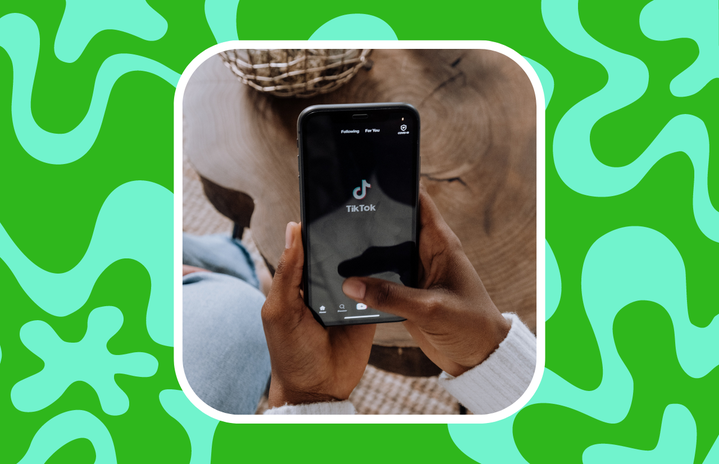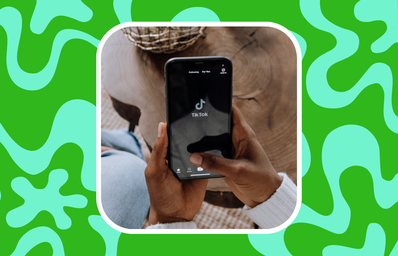Social media comes with a whole host of benefits that allow us to be creative and connect with friends, however, it has the innate ability to capture our attention for long periods of time, to the detriment of our self-esteem and attention span. Not only can it make us feel inadequate, but it can actually prevent us from being as productive as we have the potential to be. If anyone else finds themselves scrolling through TikTok, Instagram, or Twitter mindlessly when they have a few minutes, you’re not alone! We’ve become so reliant on constant entertainment, that it can be difficult to spend even a few moments in our own company.
Social media decreases our tolerance for more meaningful, but slightly longer tasks. Having been an avid reader as a child and teenager, it is hard not to notice the difference in my attention span. Having once spent hours immersed in the word of a book, unable to tear away from the universe I’d entered through the pages of a book, it is impossible to ignore the difference in my concentration. While it may be possible to attribute these changes to lifestyle changes such as being at university or reading more complex books, it is noticeably easier to spend an hour scrolling at my phone than doing uni work, housework, or even doing things that I enjoy. Throughout my degree, I’ve found myself deleting various social media apps when I’ve been approaching a deadline as I’ve been conscious about how much time I waste on them. When I’ve got an essay to write or a project to submit, suddenly my phone is the most interesting thing going and I’ll find myself doing anything I can to avoid my real work.
So, why are we so reliant on social media and our phones? Social media has an array of content for users to enjoy, which provides us with the instant gratification of a dopamine hit and the motivation of reward and pleasure that comes from likes, notifications and other small actions. Instant gratification is much more immediately satisfying than working towards a larger task where it takes much longer to see results. Companies like Snapchat, Instagram, and TikTok capitalise on our reliance on this to capture our attention.
Another reason why we struggle to concentrate so much is that phones and social media interrupt the single-mindedness of our brains. Our brains can only focus on one thing at once; when we’re focussing on a task and a message pops up, not only are we losing the time taken to read the screen, but the time our brains take to jump back to the task at hand, which is much longer than you’d think.
While I’m not suggesting that you delete every social media app and change your habits to get yourself away from your phone, I think it is important to evaluate what is important to you and how you value your time. If you frequently find yourself absorbed in a rabbit hole of scrolling that takes away from the tasks that you need to get done, challenge yourself to reduce your screen time and prioritise everything you’ve been putting off. While it may feel uncomfortable not to have the fallback of mindless scrolling, it forces you to find things that bring you joy or will improve your life to fill up your time with. For example, when I have a spare hour, I’ll challenge myself to leave my phone in another room and tidy my room, reply to emails or commit time to a hobby that I really enjoy.
I often find that choosing hobbies that give you physical results, such as crafting, painting, writing, and reading, allows you to see how much more creative and productive your time allows you to be as you’ll have a finished book that you’ve read or project that you’ve made rather than a backlog of liked TikTok videos.
TikTok perfectionism
Not only does our concentration seem to be lacking as a result of our social media usage, but apps such as TikTok in particular encourage us to maintain a constant state of craving perfection. Scrolling through the for you page provides us with many different contradictory visions of the ideal life. We’re constantly on the hamster wheel of craving perfection, with hundreds of different specific aesthetics that demand an impossible reality where everything is perfect. Many influencers share an incite into their lives where they will share a ‘day in the life’ or ‘what I eat in a day’ where they share what is ‘actually’ happening in their life. Videos like this encourage an unrealistic demand for our inner and outer lives to be perfect and encourage the feeling of guilt when we unsurprisingly cannot live up to these ourselves. Constantly living in a state of self-improvement means we never reach a point where we are happy and content, but constantly feel inadequate.
TikTok consumerism
The proliferation of ‘run, don’t walk!’ on TikTok encourages a materialistic throwaway attitude to shopping. Creators insist that you need to buy whatever new product they have found, encouraging a throwaway consumer culture with “a need for constant newness in their wardrobes.” Particularly with fashion, it is impossible to keep up with trends, not only is it unrealistic but unsustainable to buy a new wardrobe for every season. While fast fashion is becoming more of an issue and we’re in a cost-of-living crisis, this is not the moment to be promoting extreme consumerism that most people cannot afford.
I’m not suggesting abandoning social media and phones altogether, because within such a digital society, such a disconnection is near impossible, and social media can have a number of benefits, involving staying connected with friends and inspiring new opportunities. Instead, being more conscious of the media you are consuming, putting your phone down to be present every now and then, and using social media for more positive outlets can be beneficial for our mental health. Using social media for things such as inspiring hobbies rather than mindless scrolling can be one way of changing your habits. Taking the time to evaluate what brings you joy and what doesn’t can help you stop wasting energy on things that ultimately bring you down.
Communicating through social media is one of the primary ways that young people connect, however, when each platform is competing to be our primary mode of communication, it immediately encourages us to interact with the content on their pages. Messaging friends over text rather than social media can be helpful so that you don’t get overwhelmed by unwanted scrolling, and social media consumption becomes an active choice rather than a convenience. Unfollowing people that make you feel inadequate and pressing ‘not interested’ when you feel overwhelmed are small steps that can make a big difference.


